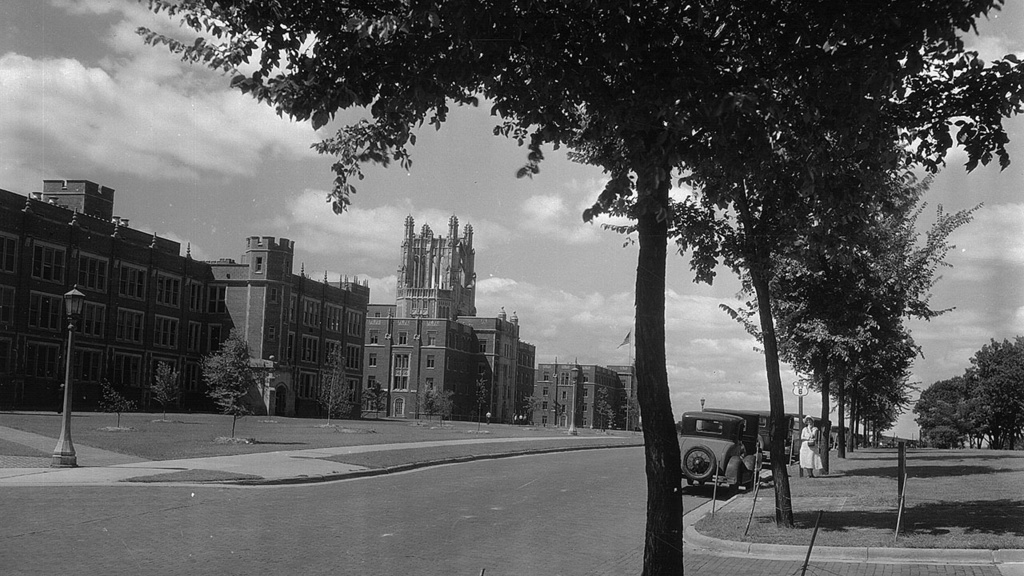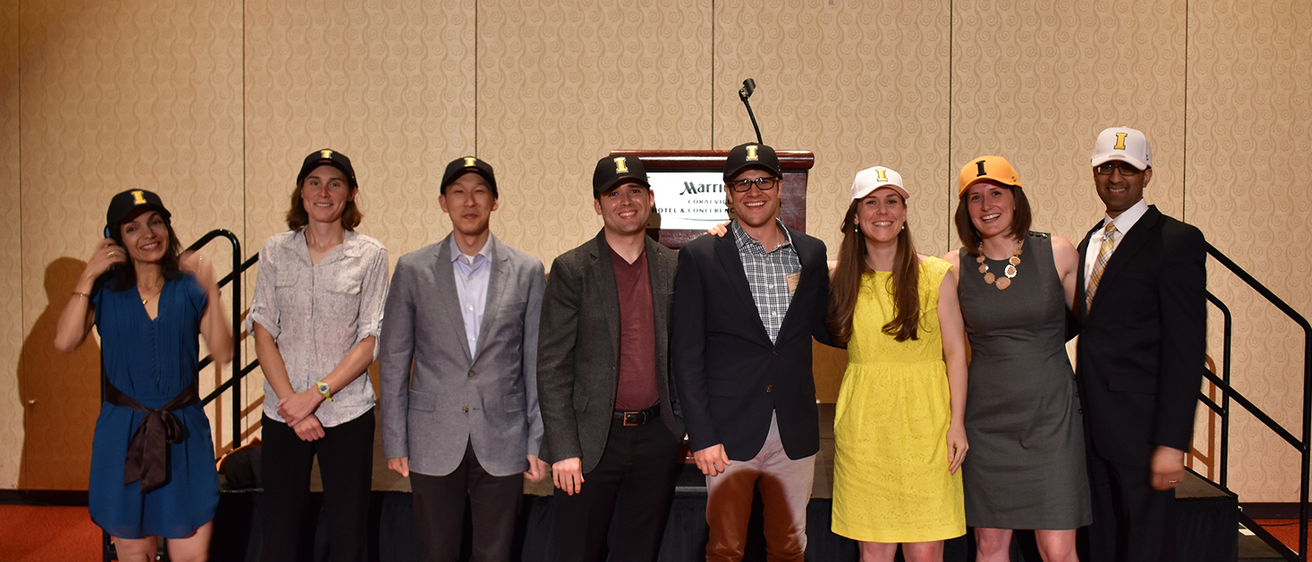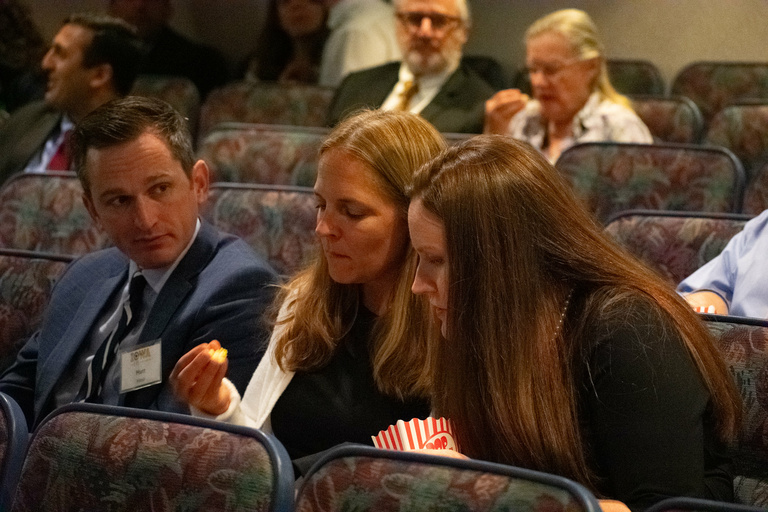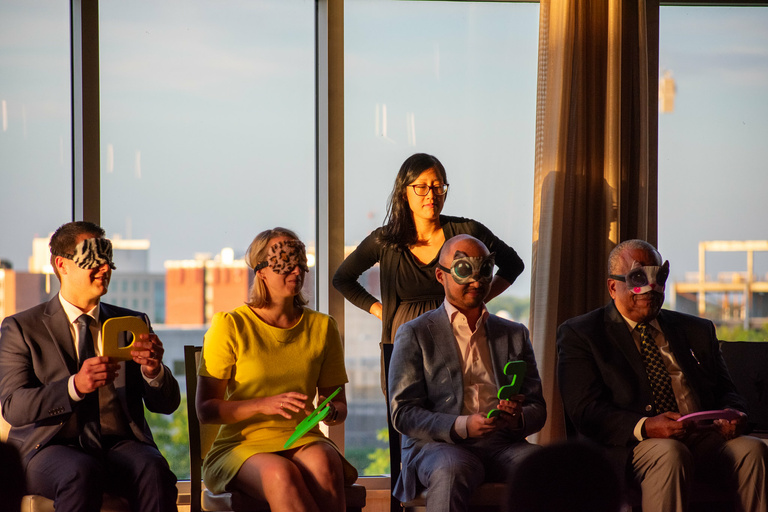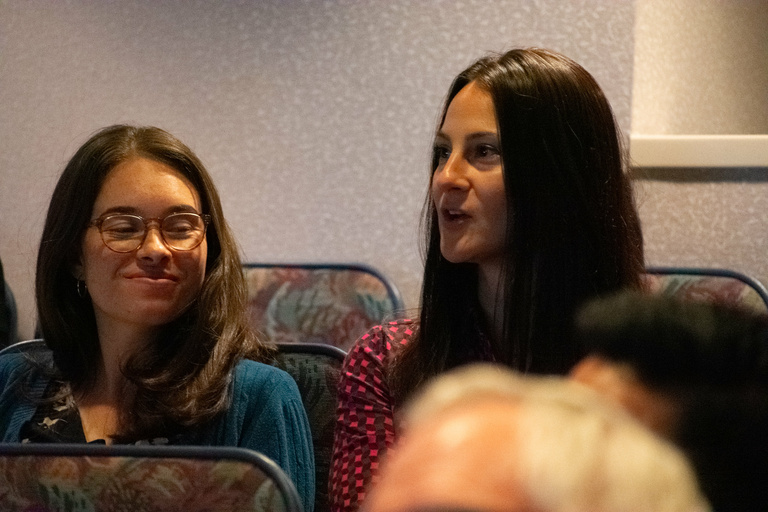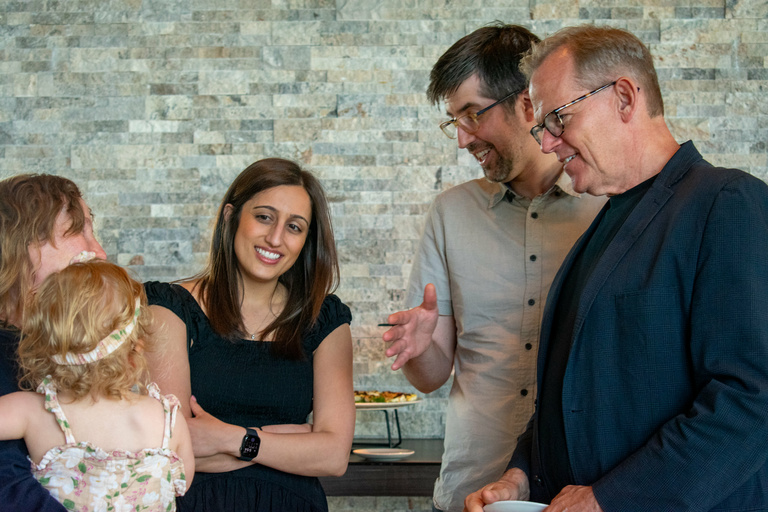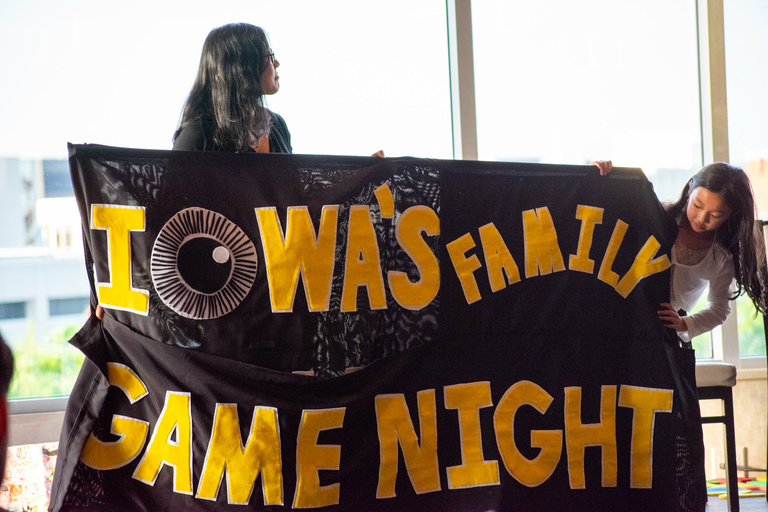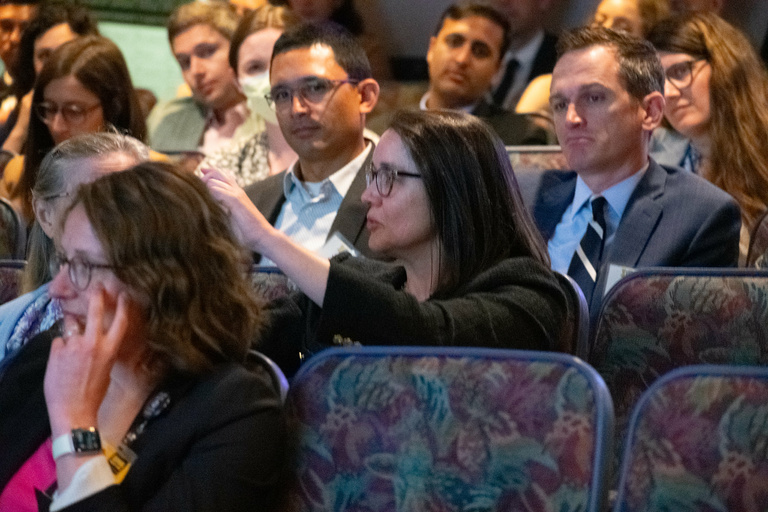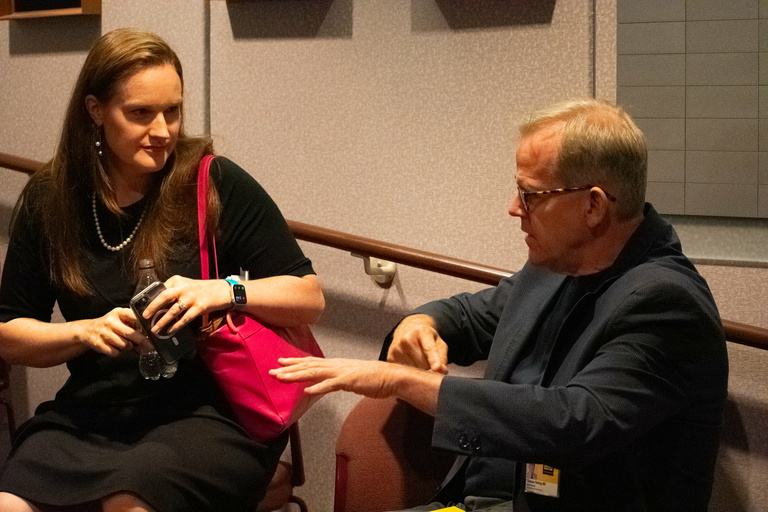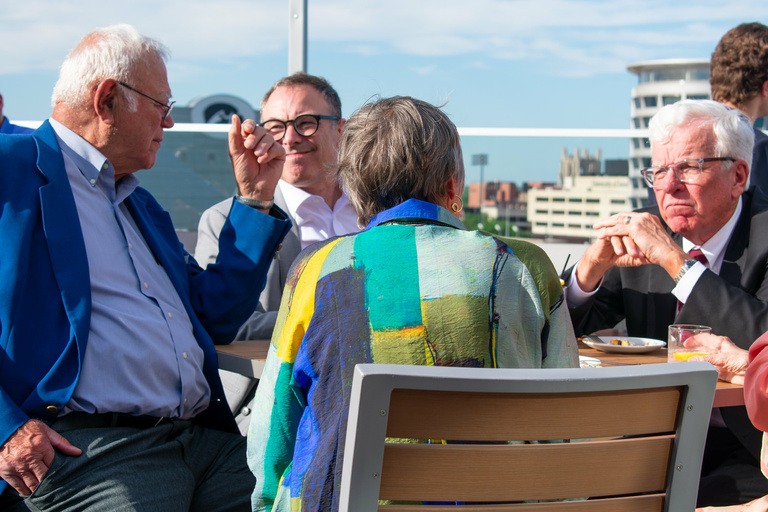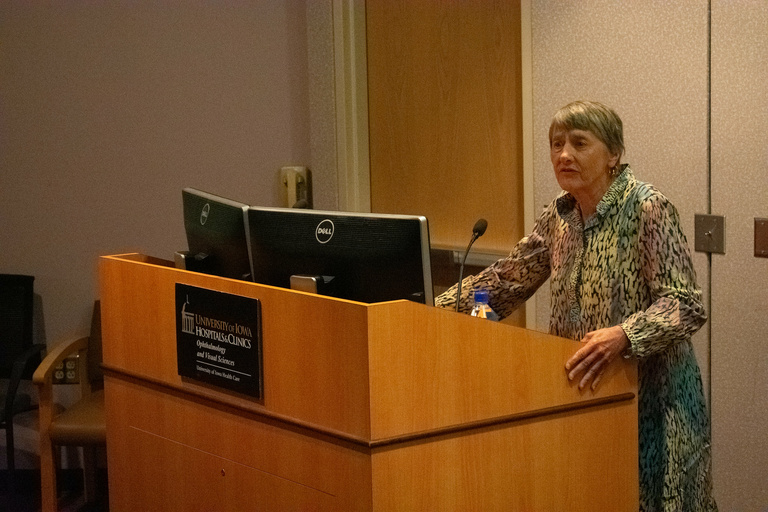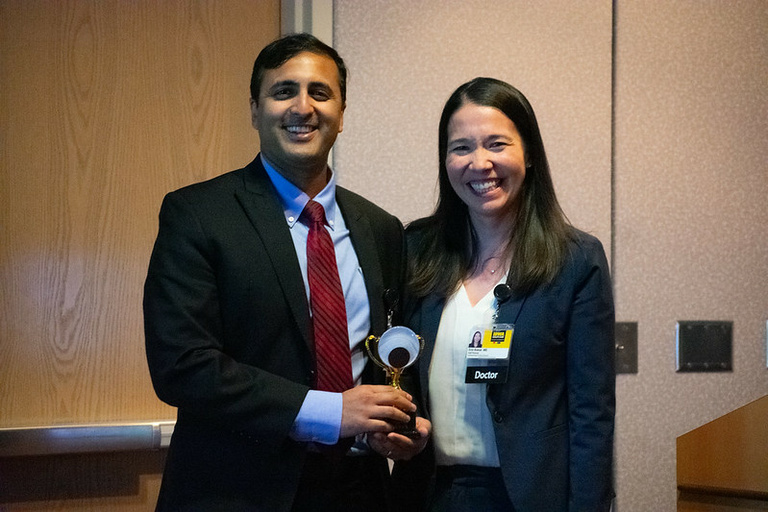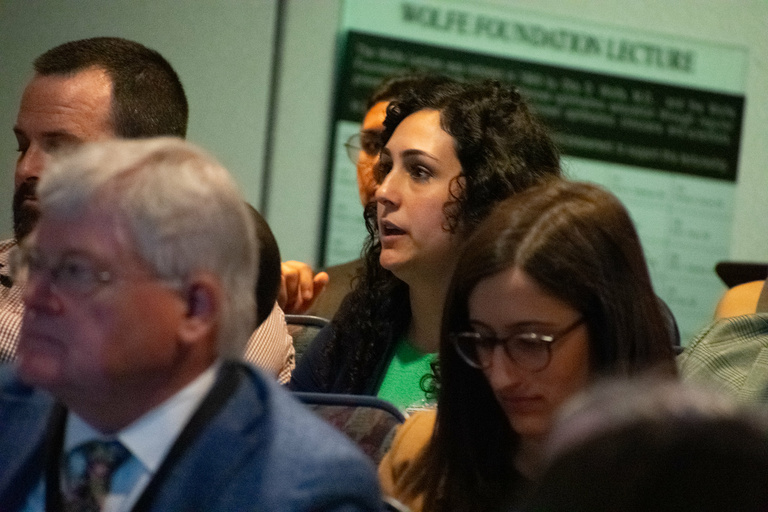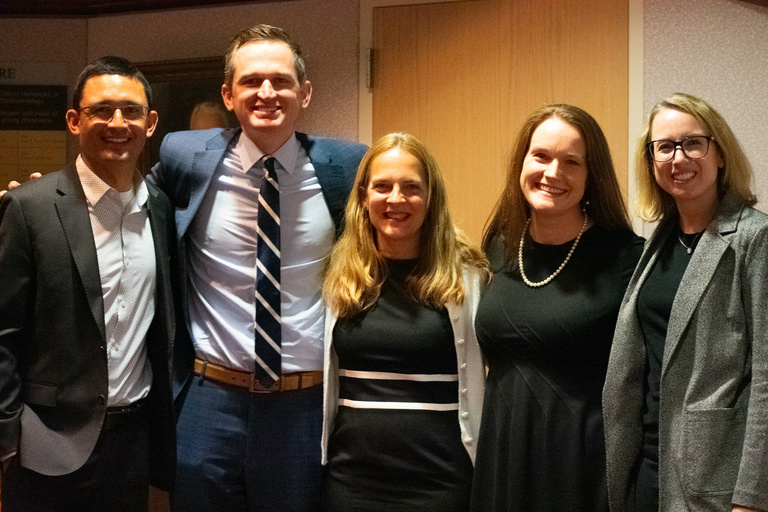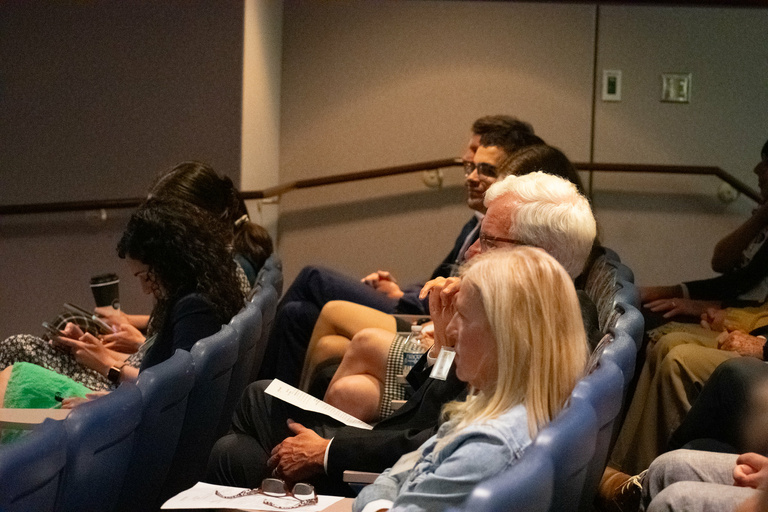Increase your ophthalmic knowledge and enhance your clinical skills!
2025 Iowa Eye Annual Meeting and Alumni Reunion on Friday & Saturday, June 13-14! This year we will also hold events on the evening of Thursday, June 12 and all day on Saturday, June 14 in celebration of the Ophthalmology Department turning 100! Travel days will be Thursday, June 12, 2025 and Sunday, June 15, 2025.
Schedule of Events
Thursday, June 12, 2025
Travel Day.
From 6 p.m. to 9 p.m. there will be a welcome party at Big Grove Brewery. Free food and the Iowa Lion’s Eye Bank and KidSight will have family-friendly activities on the lawn!

Friday, June 13, 2025
A full day of CME opportunities in Braley with Iowa-associated speakers, 8 a.m. to 4 p.m. with breakfast and lunch served.
An evening alumni cocktail reception to be held at the Walker Homestead.

Visit Walker Homestead's Website
After the reception, there will be a banquet with food and drinks.
Friday's banquet will also feature an appearance from Dr. Glaucomflecken, alum Will Flanary!
Saturday, June 14, 2025
In the morning there will be subspecialty-specific case presentations/meetings from 8 a.m. till about noon.
For lunch we will head to a local park for lunch and family friendly activities. The park includes a splash pad, basketball courts, a disc golf course, and more!

Around 4 p.m. we’ll all meet at Kinnick Stadium for a tour of the stadium.

Around 6 p.m. we will host a dinner in the club level of Kinnick Stadium where we will celebrate 100 years of the department of ophthalmology at Iowa.


Hotel Accommodations
We have reserved a block of rooms at the Courtyard Marriott, located a block from UIHC on Melrose. You can book online here or you can call (319) 569-6777 and tell them you're booking a room for Iowa Eye.
Speakers
Wallace Alward, MD
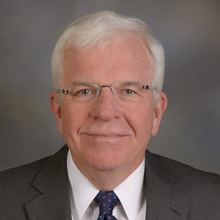
He is an Emeritus Professor of Ophthalmology and Visual Sciences at the University of Iowa Carver College of Medicine where he was also the Frederick C. Blodi Chair in Ophthalmology, Vice-Chair of Ophthalmology & Visual Sciences, and Director of the UIHC Glaucoma Service.
Dr. Alward is primarily a glaucoma clinician. His areas of research interest include pigmentary glaucoma, combined glaucoma and cataract surgery, normal tension glaucoma, and gonioscopy. The major focus of his research over the last many years has been the molecular genetics of glaucoma. In collaboration with Edwin Stone and Val Sheffield, Dr. Alward was part of the team that described the first gene for primary open angle glaucoma. He was involved in the discovery of the myocilin gene for primary open angle glaucoma, the PITX2 and FOXC1 genes for Axenfeld-Rieger syndrome, and the TBK1 gene for normal tension glaucoma.
Dr. Alward has been active in web education for a number of years and is the driving force behind Gonioscopy.org and the Iowa Glaucoma Curriculum.
He has been honored for his contributions to education. He was one of the 2012 recipients of the Regents Award for Faculty Excellence. Given by the Board of Regents, State of Iowa, the award honors faculty members for work representing a significant contribution to excellence in public education. He was also the inaugural recipient of the 2016 American Glaucoma Society Outstanding Educator Award. The award recognizes his extraordinary commitment to advancing glaucoma education to residents, fellows, and colleagues.
Lisa Arbisser, MD (83R)

Dr. Lisa Brothers Arbisser is a distinguished ophthalmologist specializing in cataract and anterior segment surgery. A Princeton University graduate, she completed her residency at the University of Iowa Hospitals and Clinics, where she honed her expertise in refractive and complex cataract surgery for both adults and children. Dr. Arbisser is an Adjunct Associate Professor at the University of Utah's Moran Eye Center, where she is renowned for her work in teaching and managing complex cataract surgery complications.
In addition to her teaching roles, Dr. Arbisser is a prolific author and editor, contributing to textbook chapters, journal articles, and the American Academy of Ophthalmology's online news network, Focal Points. She holds editorial positions with Cataract and Refractive Surgery Today (CRST) and Eye World, and she pens regular columns for both publications. Recognized for her contributions to the field, she has been listed among the Best Doctors nationally, voted as one of the top 50 opinion leaders in cataract and refractive surgery, and named one of the 250 leading innovators in premium IOL implant surgery by Premier Surgeon.
Dr. Arbisser's dedication to advancing ophthalmology is evident through her service on the Cataract Committee for the AAO Online and Education Network and her role as Cataract Editor for Focal Points. Her primary goal is to eliminate secondary cataract, and she continues to influence the field through her extensive teaching, writing, and clinical work.
Christopher Blodi, MD (84F)

Christopher F. Chris Blodi graduated from Washington University Medical School in St. Louis and completed a transitional internship in Tucson, AZ. After finishing his ophthalmology residency at the Bascom Palmer Eye Institute of the University of Miami he completed a Heed fellowship in diseases and surgery of the retina and vitreous at the University of Iowa.Dr. Blodi was then appointed Assistant Professor at the Bascom Palmer Eye Institute and later as Associate Professor at the University of Iowa Department of Ophthalmology. In 1992 he founded Iowa Retina Consultants, Inc. in West Des Moines, the state’s first multi-doctor eye specialty private practice. Dr. Blodi retired from private practice in 2018. He now works at Broadlawns Medical Center, a public hospital in Des Moines and holds a clinical appointment at the Truhlsen Eye Institute of the University of Nebraska Medical Center in Omaha.Dr. Blodi is a life member of the American Academy of Ophthalmology from which he received both an Honor Award and a Distinguished Service award. He is a member of the Retina Society, the Macula Society and the American Society of Retina Specialists, which named him a charter member of their Retina Hall of Fame.Dr. Blodi has published over 100 articles, book chapters and reviews. His work has appeared in publications ranging from the New England Journal of Medicine to Sports Illustrated. Dr. Blodi serves as an examiner for the American Board of Ophthalmology and as a reviewer for numerous journals.Dr. Blodi has published numerous articles and made many presentations concerning ophthalmic history, including the 2023 Charles Snyder Lecture at the annual meeting of the Cogan Ophthalmic History Society and the 2024 Jay Galst Memorial Lecture at the New York Eye and Ear Infirmary. Dr Blodi is the current president of the Cogan Society.
Keith Carter, MD, FACS (89F)
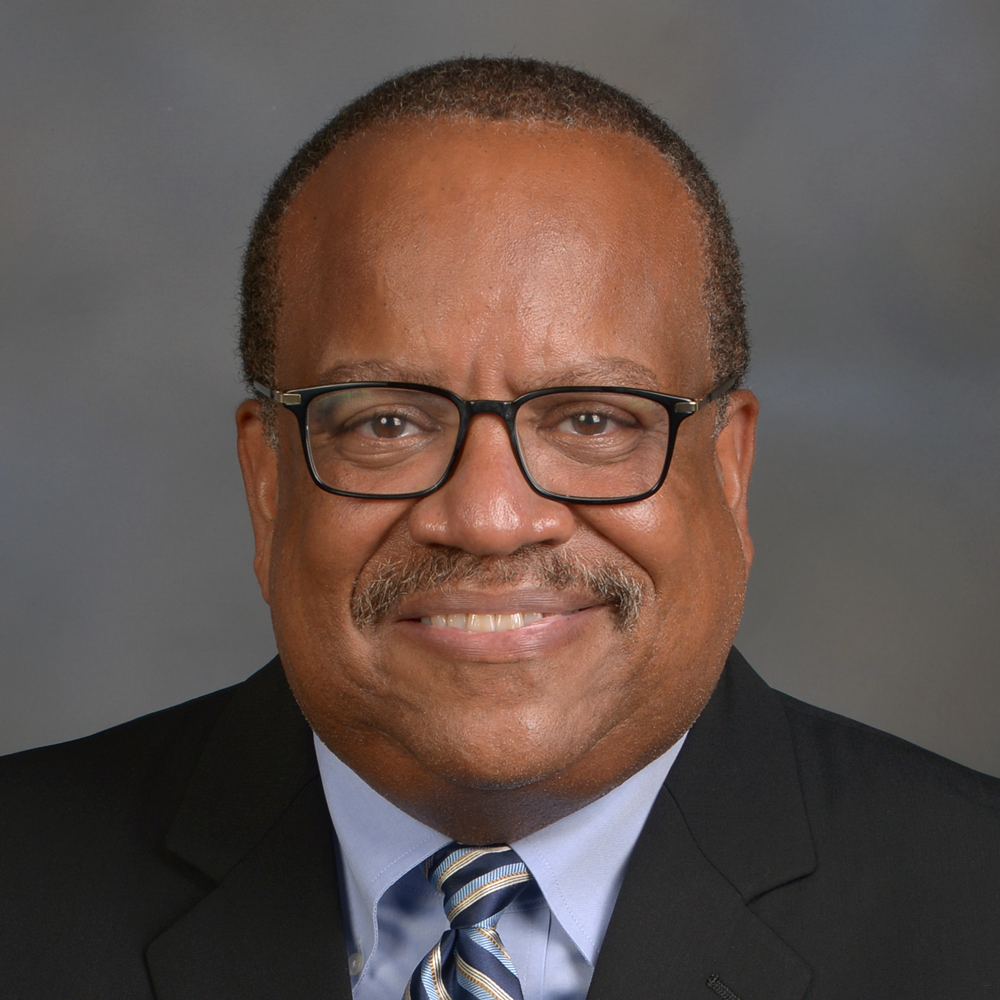
Dr. Carter’s clinical specialty is in oculoplastic surgery. A faculty member at University of Iowa Health Care since 1988, he now serves as chairman and head of the Department of Ophthalmology and Visual Sciences and holds a joint appointment as professor of otolaryngology at the University of Iowa Carver College of Medicine.
He is a graduate of Purdue University Pharmacy School and earned his medical degree from Indiana University School of Medicine. He completed his ophthalmology residency training at the University of Michigan and oculoplastics and orbital surgery fellowship at University of Iowa Hospitals and Clinics.
William Dupps, MD, PhD (04R)
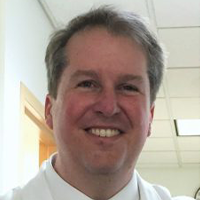
William J. Dupps Jr., MD, MS, PhD, a native of Catawba Island, Ohio, joined the staff of Cleveland Clinic in 2006 and has appointments in Ophthalmology, Biomedical Engineering and Transplantation. His academic appointments include Professor of Ophthalmology at the Cleveland Clinic Lerner College of Medicine and Professor of Biomedical Engineering at Case Western Reserve University. After graduating with an undergraduate degree in chemical Engineering from Purdue University, he completed his master’s and doctoral degrees in Biomedical Engineering at The Ohio State University, where he also earned his medical degree with honors as a fellow in the Medical Scientist Training Program. He completed an ophthalmology residency at the University of Iowa Department of Ophthalmology and Visual Sciences, a research fellowship in ocular gene therapy at the National Eye Institute, and a two-year Cornea and Refractive Surgery Fellowship at the Cole Eye Institute. He specializes in refractive surgery, corneal transplantation, and cataract surgery.
With research support from sources such as the National Keratoconus Foundation, the National Institutes of Health, and Research to Prevent Blindness, Dr. Dupps leads an interdisciplinary research team in the Ocular Biomechanics and Imaging Laboratory at the Cole Eye Institute focused on the biomechanics of keratoconus and methods for improving refractive surgery outcomes with patient-specific computational modeling. Dr. Dupps is listed in Who’s Who in Medicine and Healthcare, Who’s Who in Science and Engineering, and America’s Top Ophthalmologists. His contributions have been recognized by his peers through membership in the American Ophthalmological Society and honors such as the Kritzinger Award and a Senior Achievement Award from the International Society of Refractive Surgery and the American Academy of Ophthalmology. He was named Teacher of the Year by the residents of the Cole Eye Institute in 2010 and is the Director of Cole Eye Institute’s cornea and refractive surgery fellowship training program.
Dr. Dupps is Editor of the Journal of Cataract & Refractive Surgery, a leading journal in the field of anterior segment eye surgery, and has authored numerous journal articles and book chapters. He is named on several patents and received the Cleveland Clinic’s first Early Career Innovation Award in 2008.
Jonathan Dutton, MD, PhD, FACS (83F)
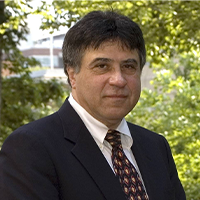
Dr. Dutton was born and raised through college in New York City. He received Masters and Ph.D. degrees in Biology, Anatomy, and Vertebrate Paleontology from Harvard University in 1970 and was Sinclair Professor of Evolutionary Biology and Chief of the Paleontology section at Princeton University from 1970 to 1973 Between 1966 and 1973 he led ten scientific paleontological research expeditions to East Africa, and for four years co-directed the joint Princeton University and Kenya National Museums East Africa expeditions with anthropologist Richard Leakey. Dr. Dutton then changed careers and obtained an M.S. degree in medical physiology in 1974 and an M.D. degree in 1977 from Washington University. He did an internship year at the University of Washington in Seattle and then served as a glaucoma research fellow with Dr. Bernie Becker at Washington University from 1978-1979. He then undertook a residency in Ophthalmology, also at Washington University, and completed a second fellowship in oculoplastic surgery and ophthalmic oncology at the University of Iowa with Dr. Richard Anderson in 1983. He served as Professor and Chief of Oculoplastic Surgery at Duke University from 1983 until 2000, and then at the University of North Carolina until 2014. Dr. Dutton is currently Professor Emeritus of Ophthalmology and Ophthalmic Oncology at UNC. He is certified by the American Board of Ophthalmology and is a fellow of the American Academy of Ophthalmology, the American Society of Ophthalmic Plastic and Reconstructive Surgery, and the American College of Surgeons. He is a Board Member of the International Thyroid Eye Disease Society (ITEDS), served as President of the Society from 2018-2020, and was the founder and Medical Director of the ITEDS Tissue Bank from 2013-2020. Since 2009 he currently serves as Editor-in-Chief of the journal, Ophthalmic Plastic and Reconstructive Surgery. He is author of nine books on African paleontology, oculoplastic surgery, orbital anatomy, orbital radiology, and thyroid eye disease. He has published more than 250 papers in peer-reviewed journals, and contributed more than 80 book chapters. He has been an invited speaker at more than 200 meetings in 70 foreign countries.
Ian Han, MD
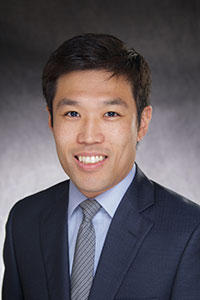
Dr. Ian Han works with a highly collaborative team at the Institute for Vision Research, whose mission is to cure blindness by elucidating key pathways of retinal disease and developing breakthrough treatments. His research involves a multidisciplinary approach that synthesizes insights from advanced retinal imaging and translational models. Current treatments in development use cutting-edge technologies such as viral vector-mediated gene therapy, sustained drug delivery with nanoparticles and 3D-printed biomaterials, and retinal cell replacement with patient-derived autologous induced pluripotent stem cell grafts. He also leads the Retinal Imaging and Modeling (RIM) Lab, which uses computational methods for analyzing multimodal imaging data to improve understanding of pathophysiologic mechanisms and guide clinical trial design. Synergistic to these efforts is his practice as a vitreoretinal surgeon, which informs and motivates scientific pursuits from the clinic to the lab and back.
Randy Kardon, MD, PhD (87R, 89F)
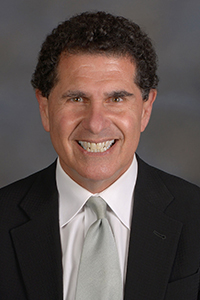
Randy Kardon M.D. Ph.D., is tenured Professor of Ophthalmology, served as Director of the Neuro-ophthalmology Service and Neuro-ophthalmology Fellowship Director for over 20 years, and has been faculty at the University of Iowa and Veterans Administration Health Care System for 35 years. He holds the Pomerantz Family Endowed Chair in Ophthalmology and is Director of the Iowa City Veterans Administration Center for the Prevention and Treatment of Visual Loss, competitively funded by the Rehabilitation, Research and Development Division of the Veterans Administration for the last 15 years. The VA Vision Center grant has recently been renewed through June 2029 for $6M in core funding. Dr. Kardon has published over 20 chapters, co-authored a textbook, and has published 265 peer-reviewed journal articles. Dr. Kardon has been fortunate to have had continuous Federal grant funding for 34 years and is presently the Principal Investigator and Co-investigator on 5 major grants externally funded by the Veterans Administration and NIH. Dr. Kardon currently teaches and mentors undergraduate students, medical students, residents and fellows and has received a University of Iowa Collegiate Teaching Award for his teachings and commitment to education. His main areas of current research interest include use of facial features to diagnose and monitor eye and neurological disorders, pupil and eyelid physiology and its clinical application, diagnosis and treatment of light sensitivity and traumatic brain injury, and therapeutic interventions for preserving vision in blinding eye diseases. Dr. Kardon currently investigates structure-function relationships in the visual system using optical coherence tomography (OCT) and deep learning, ocular blood flow using laser speckle flowgraphy, image analysis, and MRI. Dr. Kardon is actively involved in the development of telemedicine tools for objectively evaluating the status of the visual and neurological systems for testing in remote locations and home testing.
John Kitchens, MD (03R)

Dr. John W. Kitchens, MD, is a distinguished ophthalmologist and partner at Retina Associates of Kentucky, the largest retina practice in the state. He specializes in treating both medical and surgical retinal disorders, including wet age-related macular degeneration (AMD), diabetic retinopathy, and retinal detachment. Dr. Kitchens completed his ophthalmology residency at the University of Iowa Hospitals and Clinics from 2000 to 2003, followed by a vitreoretinal fellowship at the Bascom Palmer Eye Institute in Miami, where he also served as Chief Resident from 2004 to 2005.
Throughout his career, Dr. Kitchens has been recognized for his contributions to the field of ophthalmology. He has developed several innovative surgical techniques and has been awarded the prestigious Rhett Buckler Surgical Video Award by the American Society of Retina Specialists (ASRS) on three occasions. His expertise and dedication have earned him a place on America's Top Ophthalmologists and Best Doctors in America lists multiple times. Dr. Kitchens is also an active speaker, sharing his knowledge on new treatments for AMD, diabetes, and vascular disease at national and international conferences.
In addition to his professional achievements, Dr. Kitchens enjoys a fulfilling personal life in Lexington, Kentucky, with his wife and two children. He is passionate about photography, videography, exercise, and technology, which he pursues in his free time. His commitment to both his patients and his personal interests makes him a well-rounded and respected figure in the ophthalmology community.
Andrew Lee, MD

Dr. Lee is a Professor in the Departments of Ophthalmology, Neurology, and Neurosurgery at Weill Cornell Medical College. He specializes in Neuro-ophthalmology and currently serves as the Chairman of the Department of Ophthalmology at the Blanton Eye Institute, Houston Methodist Hospital. Additionally, he is an adjunct Professor of Ophthalmology at the University of Iowa. Prior to joining Houston Methodist, Dr. Lee held faculty positions at the University of Iowa, Baylor College of Medicine, and the M.D. Anderson Cancer Center in Houston, Texas. He graduated with Alpha Omega Alpha honors from the University of Virginia School of Medicine (M.D., 1989).
Dr. Lee completed his ophthalmology residency at the Cullen Eye Institute, Baylor College of Medicine, Houston, Texas, where he served as Chief Resident (1992-1993). He went on to complete a Neuro-ophthalmology Fellowship at the Wilmer Eye Institute, Johns Hopkins Hospital, Baltimore, Maryland, and held a Fight for Sight (Herbert Tenzer Memorial) Postdoctoral Research Fellowship in Neuropathology at Johns Hopkins.
Dr. Lee has authored over 400 peer-reviewed publications and has been an invited speaker at more than 200 regional, national, and international medical conferences. He has served on the editorial boards of 14 scientific journals, including JAMA Ophthalmology, Canadian Journal of Ophthalmology, American Journal of Ophthalmology, Japanese Journal of Ophthalmology, Eye, and Journal of Neuro-ophthalmology.
William Scott, MD (70R)
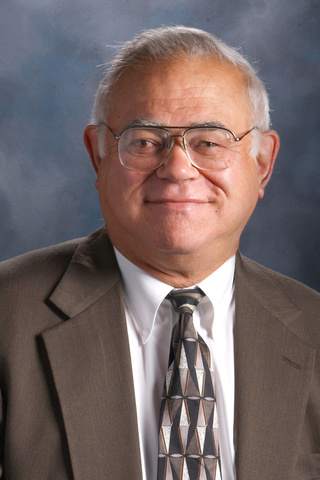
William E. Scott, MD, former vice-chair of the Department of Ophthalmology and Visual Sciences and service director for the Pediatric Ophthalmology & Adult Strabismus Service, has been named Emeritus Professor of Ophthalmology. His retirement follows thirty-one years of serving patients and educating pediatric ophthalmologists.
Dr. Scott was born and raised in Iowa City. As an undergraduate at the University of Iowa, he was a member of the Hawkeye football team representing the University in the Rose Bowl in 1957 and 1959 (the Hawks won both games). He earned his baccalaureate degree in 1959, and a master’s in physiology in 1962. Scott graduated from the University of Iowa College of Medicine in 1964. He did an internship at Wayne State General Hospital in Detroit and then returned to the University of Iowa for his ophthalmology residency. He did fellowships in pediatric ophthalmology at Smith-Kettlewell Institute for the Visual Sciences in San Francisco with Dr. Arthur Jampolsky, and Children’s Hospital National Medical Center in Washington, D.C., with Dr. Marshall Parks. He joined the faculty of the University of Iowa College of Medicine’s Department of Ophthalmology in 1971.
As a member of the faculty of the University of Iowa College of Medicine, Dr. Scott has made significant clinical, educational and research contributions. He is a prolific writer in the fields of strabismus, neuromuscular physiology of the extraocular muscles, and acquired and congenital abnormalities of eye movements. He is a founding member of the American Association for Pediatric Ophthalmology & Strabismus. Dr. Scott emphasized the importance of combining clinical care and education with his research, treating many children while simultaneously training the pediatric ophthalmologists of tomorrow. He served many years as the service director for the University of Iowa Pediatric Ophthalmology and Adult Strabismus Service and has been involved in the training of over 50 fellows in pediatric ophthalmology & strabismus.
Dr. Scott’s many awards and recognitions include the American Academy of Ophthalmology Distinguished Service Award, the American Academy of Ophthalmology Honor Award, the American Association for Pediatric Ophthalmology & Strabismus Senior Honor Award, and the Joint Commission on Allied Health Personnel in Ophthalmology Faculty Award for Distinguished Service. He is a member of Alpha Omega Alpha Honor Medical Society. He has been listed in “The Best Doctors in America” database (Woodward/White) and as one of the “Country’s Top Doctors” (Castle Connolly Publications). He has also delivered the American Orthoptic Council’s Richard G. Scobee Memorial Lecture, the American Association for Pediatric Ophthalmology & Strabismus’ Costenbader Lecture, and the Iowa Eye Association’s Alson E. Braley Lecture.
In 2001, he was honored with the creation of an endowed chair that bears his name. The chair was established with an anonymous gift of $1.6 million.
Bruce Spivey, MD (64R)
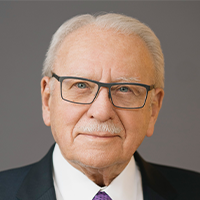
Dr. Bruce Spivey, born in 1934 in Cedar Rapids, Iowa, is a distinguished ophthalmologist and medical educator. He earned his BA from Coe College and MD from the University of Iowa College of Medicine, followed by advanced degrees in Ophthalmic Science and Medical Education. Dr. Spivey served in the Army, including a year in South Vietnam, and later held academic and leadership positions at the University of Iowa and California Pacific Medical Center. He was the founding CEO of the American Academy of Ophthalmology and held executive roles at Northwestern Healthcare Network and Columbia Cornell Care. His contributions to ophthalmology and medical education have been recognized with numerous awards and honors.
Dr. Spivey has been actively involved in various professional organizations, including the American Academy of Ophthalmology, the American Ophthalmological Society, and the International Council of Ophthalmology, where he served as President. He has authored over 140 scientific articles and delivered numerous lectures. His community involvement includes founding the Pacific Vision Foundation and co-founding the United States-China Educational Institute. Dr. Spivey has received over 40 medals and awards, including the Laureate Award of the AAO in 2015, and is a Knight of the Justice in the Order of St. John of Jerusalem.
Marc Töteberg-Harms, MD, FEBO

Before Dr. Toeteberg relocated to Iowa City to take the position of Associate Professor he served as Associate Professor for the Department of Ophthalmology and James and Jean Culver Vision Discovery Institute at Augusta University in Augusta, GA. Prior to his faculty position at Augusta, Dr. Toeteberg served as Director of the Glaucoma Service and Director of Inpatient Ophthalmology for University Hospital Zurich, Department of Ophthalmology in Zurich Switzerland. After completing his residency training in Germany and Switzerland, Dr. Toeteberg completed fellowship training in Boston, MA and Cleveland, OH.
David Tse, MD (82F)
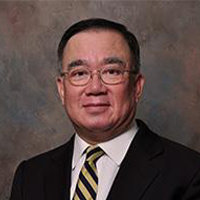
David T. Tse, M.D., is a thought-leader in oculoplastic surgery and orbital diseases who pioneered the use of intra-arterial neoadjuvant chemotherapy in treating a lethal lacrimal gland malignancy to improve long-term disease-free survival substantially. He founded the Nasser Al-Rashid Orbital Vision Research Center at Bascom Palmer, the first cure-based orbital research laboratory of its kind in the world, assembling a broad range of research scientists and clinicians focused on finding novel therapies for orbital diseases with significant morbidity and mortality, orbital cancers, traumatic optic nerve injury, and clinical applications for stem cells and biomedical studies. Tse holds five U.S. patents and ten provisional patents, one of which describes the composition and methods for treating traumatic optic neuropathy. He developed and introduced to the marketplace an integrated orbital tissue expander to stimulate anophthalmic socket bone growth to address hemifacial deformity in children born without an eye. Another innovation is the use of facial topographic mapping, 3-D printing, and silicone casting of orbital prostheses to address the principal barriers to an affordable custom prosthesis worldwide: access and cost. His laboratory is at the leading edge of transformative eye disease research – whole eye transplantation. He has 72 visiting professorships and delivered 20 named lectures. He edited the Color Atlas of Ophthalmic Surgery: Oculoplastic Surgery and has authored 71 book chapters and over 130 peer-reviewed scientific articles. He is a member of the American Ophthalmological Society and on the Editorial Board of the American Journal of Ophthalmology and the Ophthalmic Plastic and Reconstructive Surgery. He served as a Director of the American Board of Ophthalmology from 2001-2009. Dr. Tse precepts an American Society of Ophthalmic Plastic and Reconstructive Surgery approved fellowship and has trained 32 fellows.
Thomas Weingeist, MD, PhD (75R, 76F)
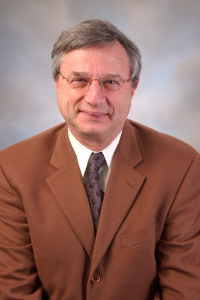
Dr. Thomas Weingeist is an Emeritus Professor of Ophthalmology at the University of Iowa. He completed a Ph.D. in cell biology at Columbia University and his M.D. degree at the University of Iowa. He has published more than 200 peer-reviewed papers and numerous textbooks. He served as the Department Head from 1986 through 2005. He was president of the Association of University Professors of Ophthalmology and the American Academy of Ophthalmology. He was Senior Secretary for Education of the AAO and was instrumental in developing EyeNet Magazine. He was EyeNet Magazine's first medical editor. Dr. Weingeist's commitment to medical education is unparalleled and strong today as one of the editors for EyeRounds and eyeOrbit.
A Visionary Century: the history of Iowa Ophthalmology
